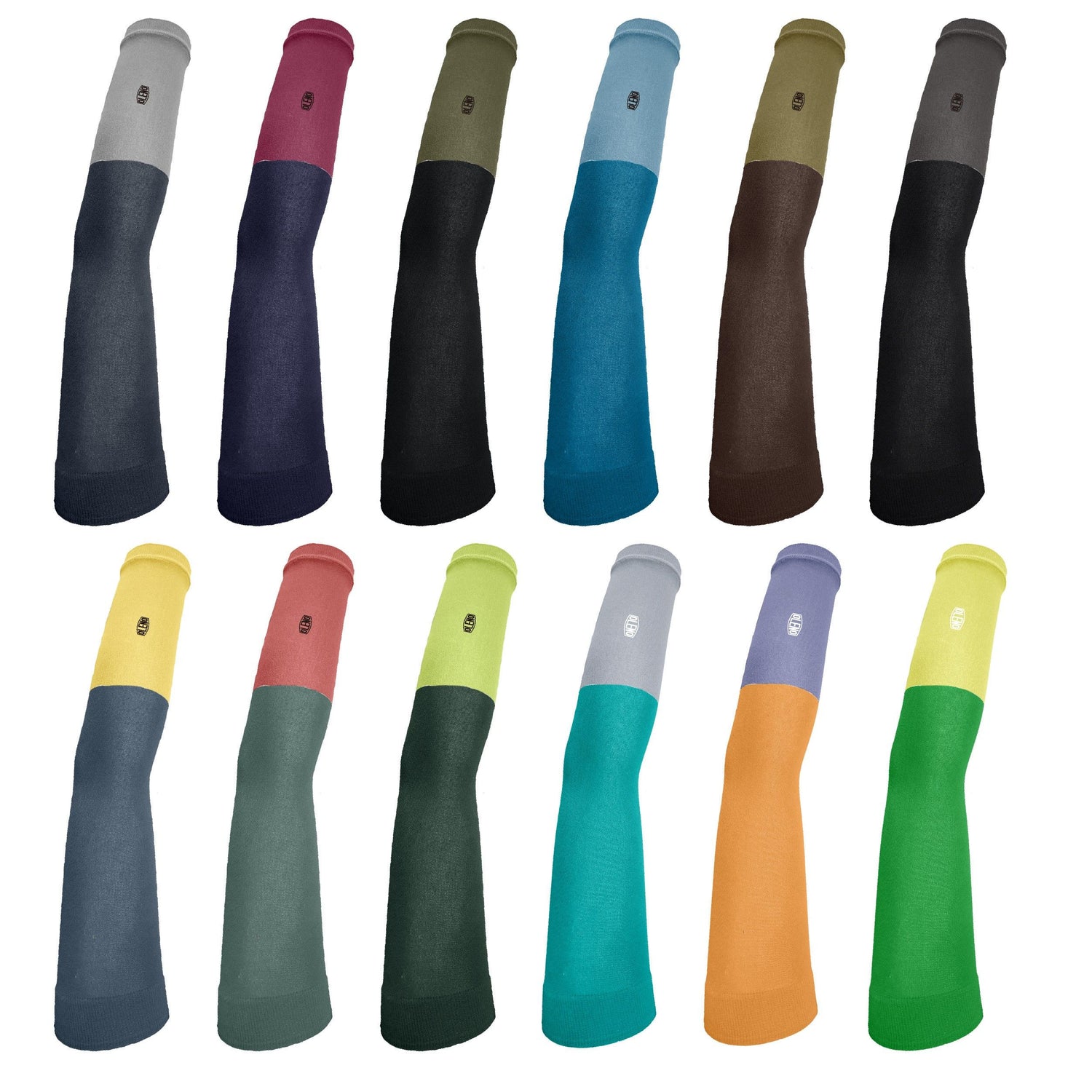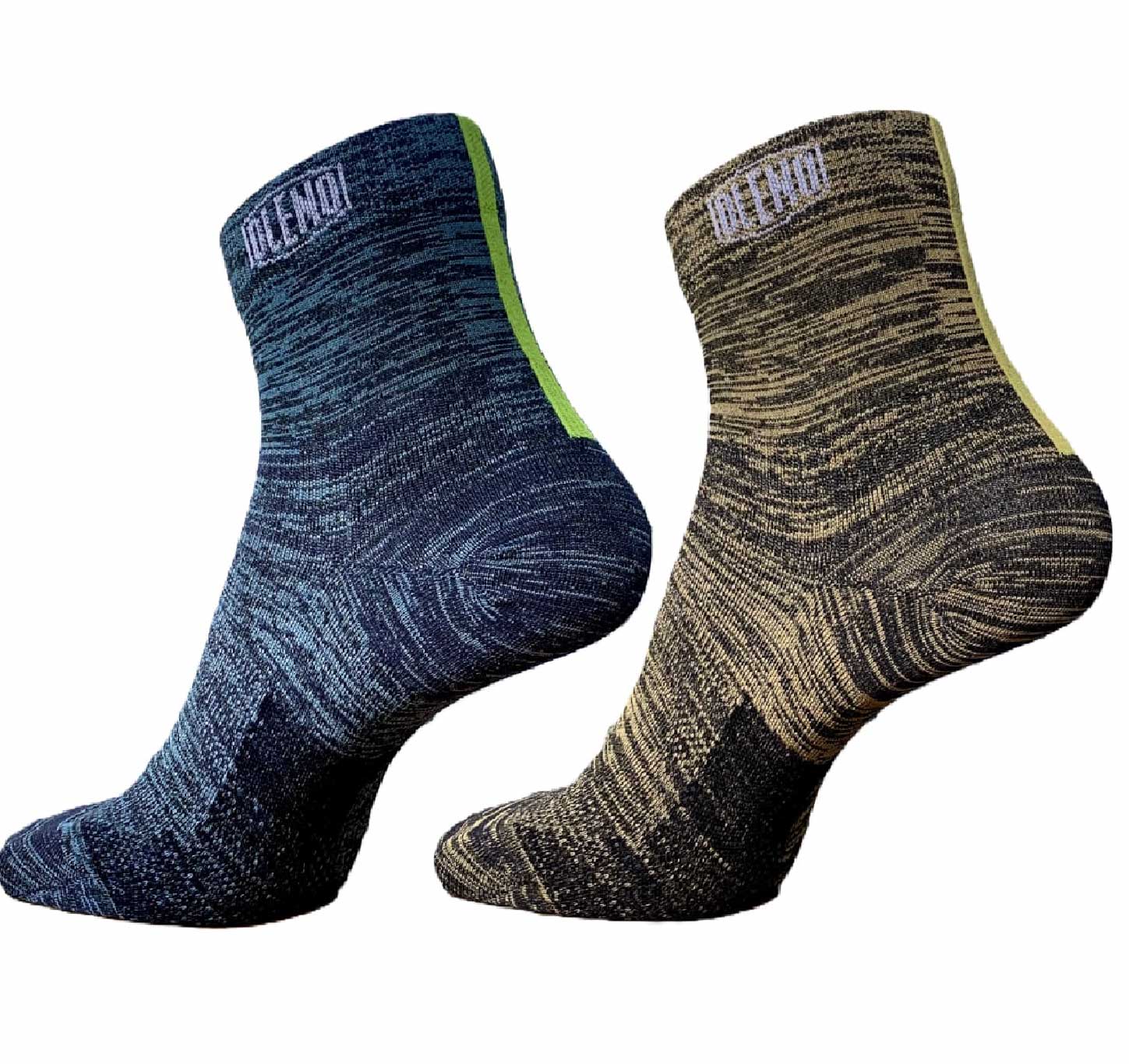It all started with customer feedback
The other day, I received an inquiry from a customer.
━ "For some reason, it seems like only one part of the UL Arm Sleeve is thinner."
At first, I thought it was just damage from wear or snagging, but when I looked at the photo, I could see at a glance that certain areas had become extremely thin. The density of the fabric had clearly decreased in those areas.

We immediately checked every process, including manufacturing, inspection, and storage, but we couldn't find the cause... As we continued to interview customers, one particular usage situation came to light.
"When I go to the mountains, I spray insect repellent directly on my skin and then wear arm sleeves."
This one word was the key to uncovering the truth.
The hidden effects of insect repellent spray ingredients on fibers
We immediately began testing the product internally. We sprayed a commercially available insect repellent spray directly onto the UL Arm Sleeves and left it for a while.


A few hours later, we could see similar areas where the fabric had thinned .
Why does this happen? The cause lies in a certain ingredient contained in insect repellent spray.
The ingredient is called "DEET"

DEET is known as a highly effective insect repellent, but at the same time, it also poses the risk of degrading synthetic fibers such as polyester and polyurethane .
In fact, the back of many insect repellents containing DEET says:
Do not use on plastic products or polyurethane-containing clothing such as stockings as this may cause discoloration.

This means that products made with synthetic fibers, such as our UL Series Arm Sleeves and Calf Protection, may also be affected.
Of course, not all bug sprays contain DEET.
It also contains safe ingredients
Icaridin is gaining attention as an alternative to DEET. It is a relatively gentle insect repellent that is also approved for use on children.
Natural sprays with peppermint oil as the main ingredient are also available on the market.
We also tested these two types of spray (picaridin-based/peppermint oil-based) by spraying them directly onto arm sleeves, and no deterioration or discoloration of the fabric was observed .

In other words, the effects of insect repellent sprays vary greatly depending on the ingredients they contain.
Please be sure to read the "Cautions on the back" before use.
While this incident occurred through a product called Arm Sleeve UL, it is a common issue with any clothing made from synthetic fibers .
When using insect repellent spray, be sure to check the warnings on the back of the package. Even though it is very important, it is often written in small letters.

If it contains DEET, avoid spraying it directly onto clothing.
If you use a spray containing DEET when using our products,
First, spray it on your skin
↓
After the spray part has dried completely
↓
Wear the product on top of it
Please use it in this way.
However, there are rare cases where a reaction may occur, so we do not recommend it and ask you to use it at your own risk .
[Products that may be affected]
●Arm sleeve UL series
● Calf protection
These products are made with high-performance synthetic fibers to ensure a comfortable wearing experience, which is why some chemicals can cause reactions.
Conclusion
What may seem like a product defect may actually be caused by "everyday usage habits."
This incident was a big wake-up call for us as well.
We hope that this information will be of some help to you so that you can continue to use our products comfortably for a long time to come.
If you have any questions, please feel free to contact us at any time.




